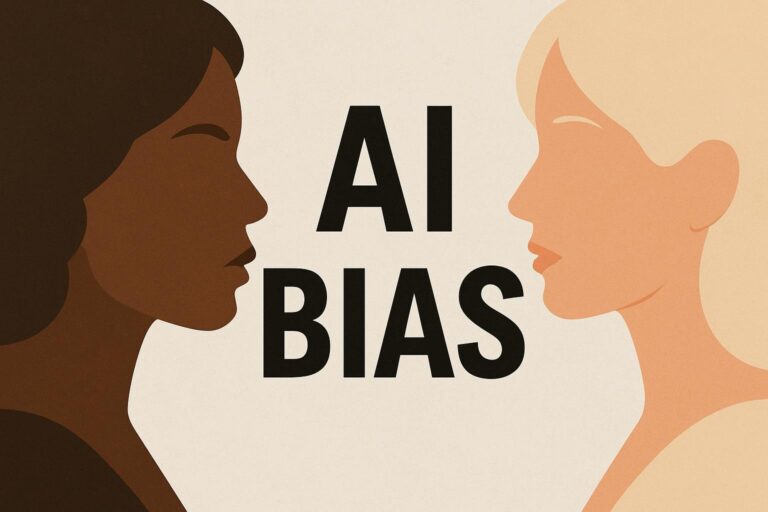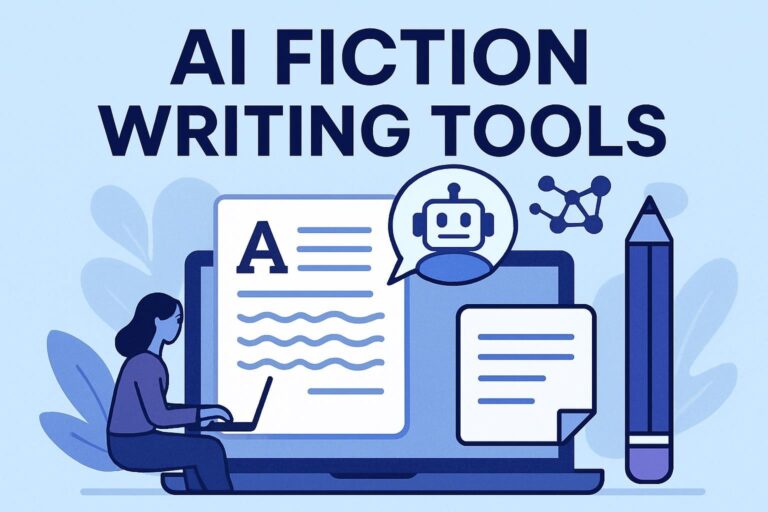Ethical use of artificial intelligence prompts is the best and most useful guide for 2025

Ethical Use of AI Prompts
As we delve into the realm of AI personalization, it is important to find out ethical tips that could manipulate its use. The Ethical Use of AI Prompts ensures that the vitality of AI to tailor content material materials and prompts to explicit individual preferences can significantly enhance client experiences whereas addressing issues about privateness, consent, and the potential for manipulation.
To assure the moral use of AI prompts, builders and clients alike must be vigilant about the info that is collected, the approach it is used, and the transparency of AI-driven picks. Only by making a framework of accountability can we harness the full potential of AI personalization with out compromising our ethical necessities.
Within the shortly evolving panorama of artificial intelligence, AI prompts have emerged as sturdy software program program for producing content material materials supplies, answering questions, and even creating artwork work. Nevertheless, as with every expertise, the moral use of AI prompts is essential to make it potential for innovation wouldn’t come at the expense of accountability and integrity.
Understanding AI Prompts

AI prompts function as the foundational queries but directions that guide artificial intelligence in producing responses but content material materials that aligns with the client’s intent. They operate the important interface between human thought and machine execution, translating our wants proper right into a language that algorithms can course of and act upon.
As such, the design and implementation of these prompts must be approached with a nuanced understanding of every the know-how’s capabilities and its potential societal impression, ensuring that AI operates inside the bounds of ethical points and contributes positively to our digital ecosystem.
AI prompts comprise pre-trained language fashions to generate textual content material materials primarily based mostly completely on entries equipped by shoppers. These fashions, like OpenAI’s GPT sequence, are educated on massive datasets and may produce human-like responses. Their capabilities fluctuate from purchaser support chatbots to ingenious writing assistants, making them terribly versatile.
Moral Issues
1: Bias and Equity: The use of AI for personalization, whereas groundbreaking, raises a quantity of ethical issues which have to be addressed to make certain fairness and cease discrimination. The info used to teach these fashions often comprise inherent biases, which can outcome in AI strategies perpetuating and even amplifying these biases when interacting with clients.
It is important for builders to implement strategies that decide and mitigate such biases, ensuring that AI personalization devices take care of all clients equitably and do not — honestly reinforce societal inequalities.
AI fashions analysis from the data they are — really educated on. If this data contains biases, the AI can inadvertently perpetuate stereotypes but discriminatory concepts. Making certain that instructing data is fairly a couple of and consultants is obligatory to lowering bias in AI-generated content material materials supplies.
2: Privateness and Safety: Personalization algorithms often require entry to delicate client info to tailor experiences efficiently. This raises very important issues about client privateness and the potential for info breaches.
It is essential for builders to implement sturdy security measures to protect this info and for clients to recollect of what data they are — really sharing and the approach it is getting used.
Transparency in info utilization and ensuring compliance with info security authorized tips like GDPR and CCPA could support in sustaining client perception whereas harnessing the benefits of AI personalization.
AI prompts usually require entry to data to operate effectively. It’s essential to safeguard non-public data and make it potential for privateness is maintained. Builders must adhere to stringent data safety authorized tips, like GDPR, to forestall unauthorized entry and misuse of private info.
3: Transparency and Accountability: To assure these guidelines are upheld, AI strategies must be designed with mechanisms that promote transparency and accountability. This means not solely documenting and explaining the decision-making processes of AI but so as well as having clear insurance coverage insurance policies and procedures in place for auditing and oversight.
By providing clients with insights into how their info is getting used and for what operate, perception in AI personalization could be fostered, thereby encouraging wider acceptance and further accountable innovation in the self-discipline.
Customers should be educated as soon as they are — really interacting with AI-generated content material materials supplies. Transparency about the utilization of AI promotes notion and permits shoppers to know the constraints and capabilities of the expertise. Accountability mechanisms ought to even be in place to deal with any misuse of AI prompts.
4: Mental Property: Respecting psychological property rights in the realm of AI personalization is paramount. As AI strategies research and evolve by ingesting large portions of info, it is important to guarantee that this info would not infringe on copyrighted supplies but the creations of others with out right authorization.
Creators and corporations alike must be vigilant in sustaining the integrity of their work whereas moreover navigating the complexities launched by AI’s functionality for producing spinoff content material materials.
Using AI in ingenious fields raises questions on psychological property rights. Figuring out who owns the content material materials supplies generated by AI—whether or not but not but not it is the explicit individual, the developer, but the AI itself—requires cautious consideration and licensed readability.
4: Misinformation and Manipulation: The potential for AI to unfold misinformation and manipulate content material materials is an enormous concern. As AI strategies flip into further refined, they’re going to generate convincing faux info, deepfakes, and completely different sorts of deceitful content material materials that will be powerful to distinguish from actuality.
This not solely poses challenges for folks trying to discern actuality from fiction but so as well as has broader implications for society, collectively with the erosion of perception in media and the potential to impact public opinion and elections. Therefore, it is important to develop and implement ethical pointers and sturdy verification mechanisms to mitigate these risks.
AI-generated content material materials supplies could be utilized to unfold misinformation but manipulate opinions. It’s essential to implement safeguards that detect and stop the dissemination of false info, significantly in delicate areas like politics and healthcare.
Selling Moral AI Use

1: Inclusive Design: Ensuring that AI strategies are designed with inclusivity in ideas is important for the ethical use of know-how. This signifies that the devices and algorithms must be developed with consideration for a large number of populations, making an allowance for completely completely different languages, cultures, and socioeconomic backgrounds.
By doing but, we could support to cease biases in AI-generated content material materials and be sure that personalization algorithms serve a broad client base fairly and equitably.
Builders ought to prioritize inclusive design tips that take into accounts the assorted needs and experiences of all shoppers. This contains involving stakeholders from fairly a couple of backgrounds inside the progress course to make sure the AI is equitable and accessible.
2: Steady Monitoring and Analysis: To be sure that AI personalization stays environment friendly and ethical, regular monitoring and evaluation are important. It’s obligatory to often assess the AI’s effectivity and the personalization outcomes to find out any biases but unintended penalties.
By implementing a options loop that options client enter and info analysis, builders can refine and modify the AI algorithms to greater serve the a large number of needs of the client base, ensuring that personalization enhances the client experience with out compromising fairness but privateness.
Common assessments of AI strategies help arrange and rectify any biases but moral components. Steady enhancement and updates to the AI fashions are essential to align with evolving moral requirements.
3: Training and Consciousness: To be sure that AI personalization stays every ethical and environment friendly, ongoing teaching and consciousness functions are indispensable.
These functions must be designed to teach builders, managers, and end-users about the significance of ethical AI practices, collectively with the accountable use of info and the implications of algorithmic decision-making.
By fostering a convention of regular finding out and ethical vigilance, organizations can greater anticipate and mitigate the risks associated to AI personalization, ensuring that these utilized sciences are used to enhance, reasonably than undermine, the public perception.
Educating shoppers concerning the potential and limitations of AI prompts fosters educated utilization. Encouraging important pondering and digital literacy helps shoppers navigate the complexities of AI-generated content material materials supplies responsibly.
4: Collaboration and Regulation: To assure AI personalization is every ethical and environment friendly, collaboration between know-how builders, policymakers, and regulatory our our bodies is essential. By working collectively, they’re going to arrange necessities and pointers that safeguard client privateness whereas fostering innovation.
This collaborative technique might also facilitate the creation of a licensed framework that addresses the distinctive challenges posed by AI, resembling info possession and algorithmic transparency, ensuring that AI personalization devices are utilized in a approach that benefits society as an total.
Collaboration between educated firms, policymakers, and ethicists could finish up in the event of full pointers and authorized tips for AI use. Establishing enterprise requirements ensures a unified method for moral AI deployment.
Conclusion
In the quest for a harmonious integration of AI personalization into the material of every day life, ongoing dialogue and transparency are paramount. All stakeholders need to sustain an open line of communication referring to the capabilities and implications of AI strategies.
By fostering an setting of mutual understanding and respect, we’re ready to be sure that AI personalization not solely enhances client experiences but so as well as upholds the values and ethics that are foundational to our society. The moral use of AI prompts requires a fragile steadiness between harnessing technological developments and upholding societal values.
By addressing bias, making certain privateness, sustaining transparency, respecting psychological property, and stopping misinformation, we’re going to pave the best method for accountable and progressive AI applications.
As AI continues to sort our world, prioritizing ethics will most possible be obligatory in establishing a future the place expertise serves humanity responsibly and equitably.



